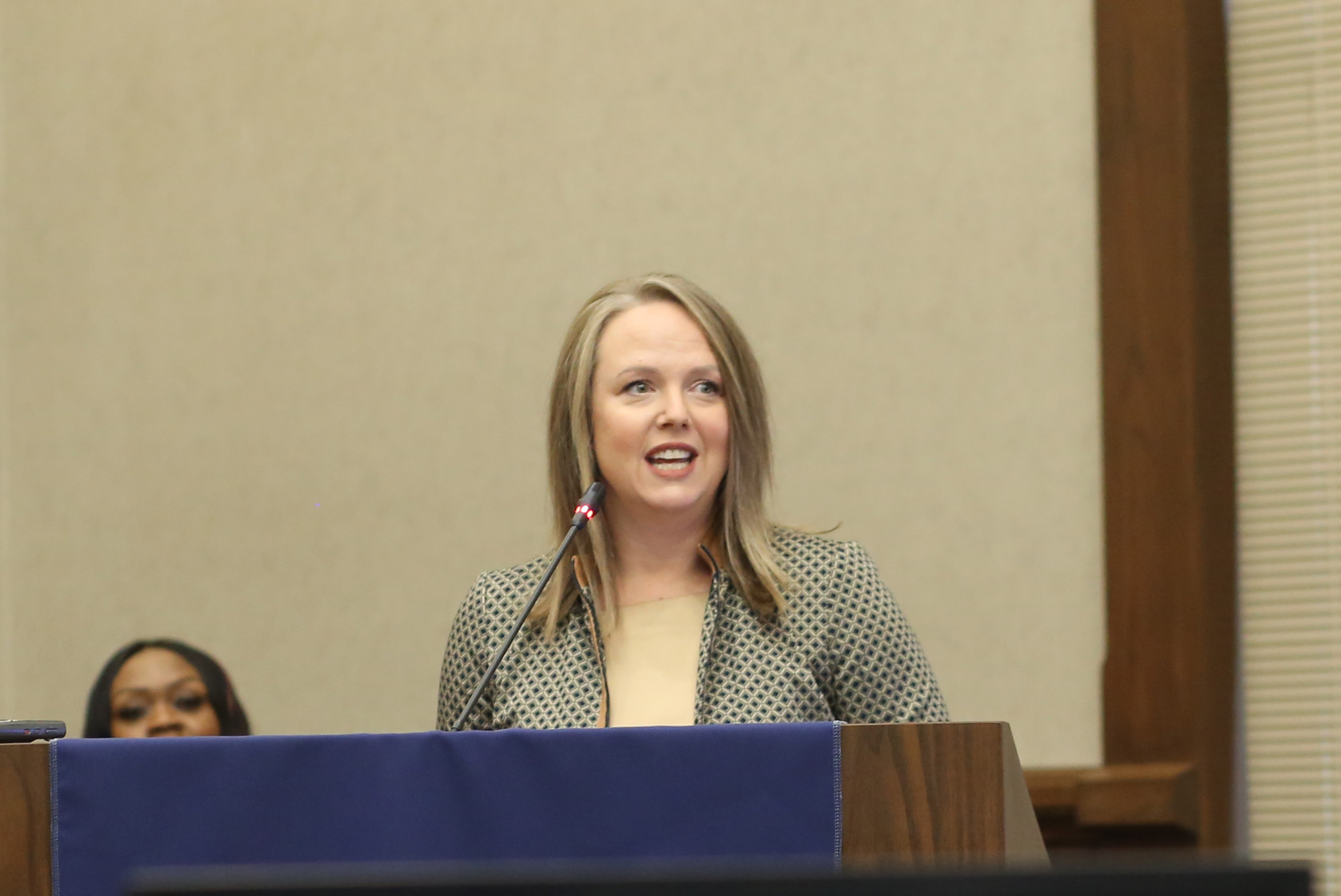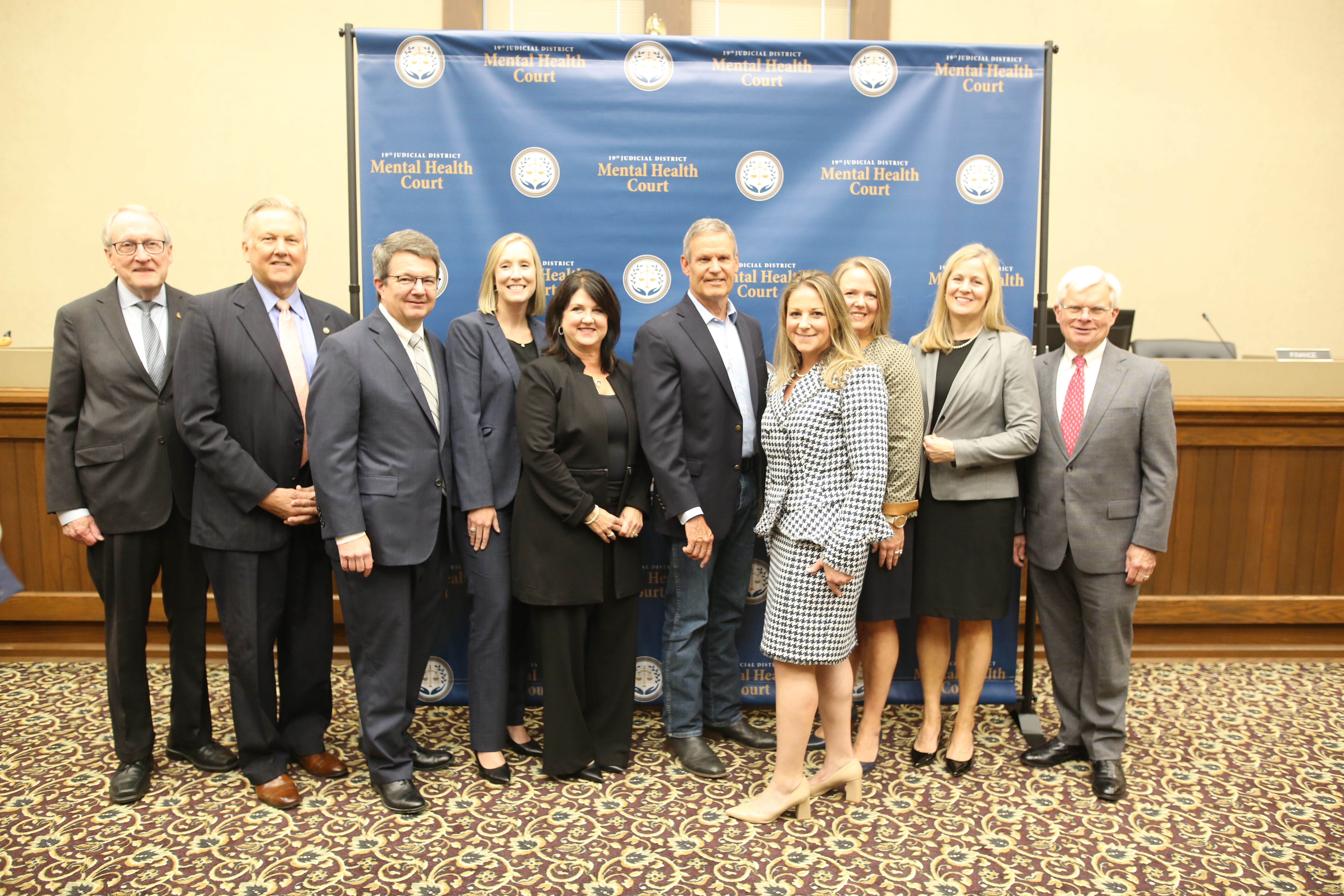After years of planning, grant applications, hiring, and meetings, the 19th Judicial District has launched a Mental Health Court.
“When I started regularly hearing criminal cases here in the 19th, I noticed that certain defendants were cycling through my courtroom,” Judge Kathryn W. Olita said. “A jail stay would give them some access to mental health treatment, meals and shelter, but often after release a repeat offense or violation will bring that person right back and often they would not have had any continuation of care while gone.”
While at a Tennessee Judicial Conference, Judge Olita heard a presentation on mental health courts. There were only nine statewide at the time.
“It's a one stop shop for those justice connected individuals with mental health needs. Because the participants involved in the criminal justice system, the court has the authority to work directly in their lives by connecting them with services and not just mental health services but housing needs,” Judge Olita said.
For the past two years, Judge Olita has been working toward making the mental health court in the 19th Judicial District, which includes Montgomery and Robertson counties, a reality. The task could only be accomplished through a coordinated effort by a passionate group set on reaching its goal.
“Our sheriff shared the challenges that he faces with the care and custody of individuals in our jail who need mental health treatment and our local mental health care providers express the challenges they face in making sure that people have access to treatment but also are utilizing that treatment,” Judge Olita said.
Judge Olita reached out to the Tennessee Department of Mental Health and Substance Abuse Services for advice on navigating the process to start a specialty court. Funding is often one of the first hurdles that must be tackled. She saw that the Montgomery County Community Health Foundation had a grant available and applied, a process she had never done before. The Mental Health Cooperative agreed to be the nonprofit partner for the project. Nearly a dozen law enforcement, nonprofit and other organizations were involved in the project before it launched.
While the groundwork for a new specialty court was being laid in the 19th Judicial District, legislation in the Tennessee General Assembly was also gaining steam. In 2021, the Alternatives to Incarceration Act was enacted, followed by the Mental Health Treatment Act of 2022.
“The history of our country has seen great changes in the way we view those who interact with the criminal justice system,” said Governor Bill Lee at the launch. “There were a number of things that fascinated me about being in public service, but criminal justice reform was one of the most important ones to me. More and more Tennesseans are benefiting from the work of courts like this one. They reduce recidivism, lower the cost of taxpayers, and, more importantly, redeem what has been destructive forces in people's lives across our state.”
Graduates of mental health court programs have lower odds of new charges, a longer time to a new criminal charge, and fewer new criminal charges. They also spend less nights in the ER and they have less interactions with our law enforcement, Judge Olita said.
Governor Lee also praised the cooperative work among various agencies and community organizations in Montgomery County that brought the project to fruition.
“There have been quite a few conversations today about the partnerships that have to happen to create an opportunity like this,” Governor Lee said. “Government is not the answer to the greatest challenges that we face in our day. Government can create an environment for the people and organizations to engage.”
The new 19th Judicial District Mental Health Court is now open and accepting new clients. Referral to the program is coordinated by the District Attorney and Public Defender. Participants are evaluated and undergo mandatory therapy and treatment. Specialty courts require a commitment on the part of the participant, who also often have drug testing, housing, and job requirements.
“It is not often in the judiciary that we are able to publicly celebrate much. Much of what we do is messy and hard, sometimes difficult and dark,” Judge Olita said. “But the truth is every day in the 19th there is good work being done by the members of our judiciary and those who work in our courts. Today we are celebrating an important expansion of our recovery court system.”
The 19th Judicial District has a traditional recovery court overseen by Judge Sharon Grimes and a Veterans Court with Judge Ken Goble, Jr.


